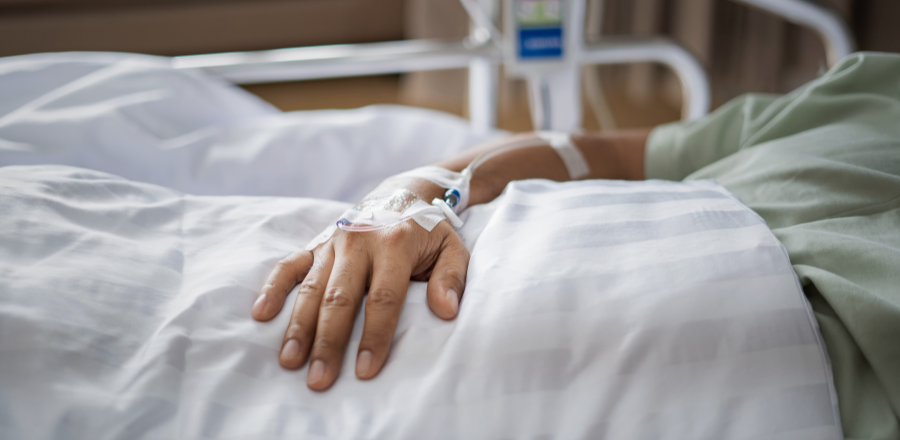By Tim Baker
Attending my first cancer conference felt like a big deal.
The 2023 Annual Scientific Meeting of ANZUP (Australia and New Zealand Urogenital and Prostate Cancer) Trials Group brings together medical specialists, nurses, patient advocates, researchers and other stakeholders, in a three-day conference to discuss the latest advances in what’s sometimes cheekily referred to as “below the belt” cancer care.
It would have been easy to feel out of my depth amid the learned medical boffins and presentations on genome sequencing and PARP inhibitors and investigations into the tumour immune micro-environment – all of which sails clearly over my humble wordsmith’s head.
But the warm welcome and inclusive culture of ANZUP makes it clear the patient voice is not just well and truly welcome here but actively listened to.
Apart from my own presentation on pro-active and integrative cancer self-care, I found my natural allies among the Specialist Prostate Cancer Nurses (SPCN), who’s sessions were brimming with research and ideas around the kinds of supportive care men with prostate cancer desperately need. And nurses are, I believe, a vital link and powerful change agents, in seeing this come to pass.
As a prostate cancer patient, it was hugely encouraging to see all the work being done, not just on developing new and better treatment options, but on making PC patients’ lives better in the meantime. The focus on issues like exercise, nutrition, sexual function and coordinated survivorship care plans was enormously heartening.
I joined the early Sunday morning session, ANZUP Nurses & Allied Health Symposium, rather than enjoying a sleep in or hitting the fancy hotel breakfast buffet. I’m so glad I dragged myself out from under the doona on a cold Melbourne winter morning and resisted the lure of endless pan au chocolat. I may have been the only person in the room who wasn’t a specialist cancer nurse or researcher, but I was made to feel entirely welcome.
When we broke into smaller round table groups, with the ubiquitous butchers’ paper and marker pens at the ready for an “Ideas Generation Workshop”, we began with the customary introductions around the table. When it was discovered there was a “consumer” at the table (me!), there was much excitement and I was peppered with questions about my own experiences and views on gaps in the health care system and unmet needs of PC patients. It was an entirely supportive and affirming experience.
I met so many kindred spirits with similar ideas that I came away with a renewed sense that real change is not just possible but imminent, thanks to the goodwill and dedication of so many health care professionals determined to make life better for men like me.
Having sat through hours of presentations, and myriad informal chats, my bullet point take aways are this:
- A prostate cancer diagnosis, especially advanced PC and the prescription of ADT, must trigger a care plan and ensure ongoing referrals to an exercise physiologist, nutritionist, and men’s sexual health specialist, at the bare minimum.
- Patients need to have the impacts of treatment, particularly ADT, better explained to them and the provision of tools and strategies to mitigate side effects needs to be a part of standard care.
- Discussion and information around sexual health and the implications for intimate relationships and sexual function need to be front and centre from the time of diagnosis and reinforced at regular intervals (perhaps six-monthly) to ensure patients understand their options and the importance of tackling these issues early on for best outcomes.
- Discussions of sexual health need to de-centre erections as the be-all and end-all of sexual function and cover themes of physical intimacy that don’t involve penetrative sex, what you might call “full body sensuality”, as a source of pleasure for patients and their partners.
- There needs to be a continual reinforcement that there is the potential for rich, joyful and meaningful life after even an advanced PC diagnosis. Simple lifestyle strategies like my own self-care mantra, M.E.D.S – meditation, exercise, diet, sleep – offers hope of maintaining and enhancing quality of life and mitigating side effects of treatment.
I’ll leave it to others better qualified than I to discuss advances in treatment options. But amid my enthusiasm for supportive and evidence-based complementary therapies, I would like to make clear my gratitude to medical science and hardworking specialists and researchers.
While I take some credit for my continued good health and rich quality of life, it is largely thanks to medical science that I am still here at all.
About the Author
Tim Baker is an award-winning author, journalist and storyteller specialising in surfing history and culture, working across a wide variety of media from books and magazines to film, video, and theatre. Some of his most notable books include “Occy”, a national bestseller and chosen by the Australia Council as one of “50 Books You can’t Put Down” in 2008, and “The Rip Curl Story” which documents the rise of the iconic Australian surf brand to mark its 50th anniversary in 2019. Tim is a former editor of Tracks and Surfing Life magazines. He has twice won the Surfing Australia Hall of Fame Culture Award.
Tim was diagnosed with stage 4, metastatic prostate cancer in 2015 with a Gleason score 9. He was told he had just five years of reasonable health left, but eight years on, at 58, he’s still surfing, writing, and enjoying being a dad. His latest book, Patting the Shark, also documents his cancer journey and will be published in August. Tim will be sharing weekly insights into his journey to help other men who have also been impacted by prostate cancer.









